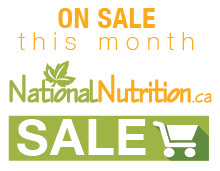As a kid you happily recall the first time you heard a Christmas song on the radio, the first snow fall and the first time you saw those twinkling lights indicating a holiday season was vastly approaching. But, somewhere along the lines of growing up, that holiday cheer turned into holiday fear. Now whenever you picture Christmas, its the dreaded store lines, the maxed out credit cards and the stress you get from having company invade your home for undetermined amounts of time. Ah yes, its that time of the year. Thankfully you make it out alive every year (barely!) but this year will be different. We've come up with the best steps to ensuring you have a happy and healthy holiday season – and most importantly, one that will keep you from hiding in bed all day following this joyous day.
1. Even Santa needs to BUDGET
Christmas shopping can take a serious toll on the pocketbook! Before your spending gets out of control, sit down and make a budget. And stick to it! Financial stress, like any type of stress, can be directly linked to illness. Research on debt stress, specifically, found it to be related to headaches and migraines, depression, heart attacks, low-back pain, and ulcers or other digestive problems. Just to name a few. Your loved ones want you healthy, much more than they want that expensive gift. Don’t over spend.
2. Get some ZZZ's
Ahhh, sleep! Rejuvenating, restoring, HEALING… sounds great! So, why aren’t you getting enough? Especially during the holiday season, when we tend to be busier with social events, shopping, and don’t forget the everyday responsibilities of home, work and family… we tend to burn the candle at both ends. And we'l pay for it. Lack of sleep can play a big part in a number of health complaints and conditions, none so obvious (or significant) as FATIGUE! Don’t be tired all holiday season, instead, get to bed. You can have your fun, and sleep, too. (If you need some tips on healthy sleep habits, check out our sleep article).
3. One Eggnog, Straight Up!
We tend to enjoy a few spirits this time of year, and fair enough, we’ve earned a glass of wine! Just be sure to limit yourself. Excess alcohol can increase your risk of liver disease, high blood pressure, high blood fats, heart failure, stroke, and certain cancers. It also impacts sleep, mood, and hormone balance. Men on average should have no more than 2 drinks daily, or more than four drinks at one time. For women, 1 drink per day on average, or no more than 3 drinks at one time is best. For optimal health, less is truly more.
4. Get Creative!
Did you know that the process of making art - whether it is writing, painting, singing, dancing, or anything in between – is good for us? Creativity has been shown to improve wellbeing, by decreasing negative emotions and increasing positive ones. It can also lead to also improved medical outcomes, as well as a reduction in depression, as it allows for expression of grief. Creating art reduces stress and anxiety, improves positive identity, and in group or class settings, can even improve social networks. There is also research to support that the act of writing, specifically, can actually improve SD4+ lymphocyte counts. This means that it impacts the body at a cellular level – improving immune function. Take home message: Get Creative! Homemade gifts are even more appreciated – how does that saying go 'It's the thought that counts?'
5. Bundle Up
In you're running off to the store to grab those last minute stocking stuffers, don’t forget to bundle up. Did you know that blood pressure could increase temporarily when exposed to cold temperatures? Many arthritis sufferers also find that symptoms are exacerbated in the cold, making joints feel stiffer, resulting with less mobility. Asthma and other pulmonary disorders can also be heightened in cold temperatures. Throw on your scarf, hat and mitts – it's not just Jack Frost nipping at your nose you have to worry about anymore.
6. Be Selfish
I know Christmas is the season of giving, but did you think to put yourself on the list of recipients? The truth is, there is absolutely nothing selfish about spoiling yourself a little. I don’t mean buying extravagant gifts. I’m talking TIME, RELAXATION, a chance to DE-STRESS. You deserve it, and your friends and family deserve time with a happy, healthy and relaxed version of you. Take a bath, go for a quiet stroll to see the Christmas lights, read a book, or meditate… do whatever you find helps you to decrea se stress and reset!
7. Graze [you know, like a cow!]
Everything in moderation! The holidays aren't exactly known as the best time to 'diet'. Instead of setting yourself up for disappointment, you're better off to enjoy a treat or two – everything in moderation. It’s all about small portions, and eating smaller meals, more often. Heading out to a holiday party? Have a small dinner first, a light salad with protein (chicken, fish or beans/lentils). That way you won’t be as likely to go overboard on cheesy appetizers, or rich desserts. Remember to drink lots of water, so you don’t confuse hunger with thirst. Enjoy aunt Marg’s Christmas cake, just savour a SMALL piece (and take the word 'second-serving' out of your vocabulary)
8. Snowshoeing, anyone?
As long as you are dressed properly, the snow can be a winter wonderland in terms of exercise opportunities! Snowshoeing, tobogganing, cross-country skiing, snowboarding, skating, or even building a snowman are great ways to stay active and take in the fresh air. Not to mention it can help keep the Christmas weight off, improve mood, keep skin looking fresh, and improve overall health and wellness. The winter can be long and unrelenting if you protest against the cold, it's better to just make the most of it – you never know, it could turn out to be your favourite season.
9. Snuggle in
If the weather outside is frightful, and the fire is so delightful,... it's best just to stay inside! Winter driving can be dangerous and stressful. For anxious drivers, it can be almost debilitating. Don’t stress yourself out. If driving conditions are less than optimal, plan your running around for another day, or carpool with a friend who feels more comfortable behind the wheel. Instead, have neighborhood friends over who can walk instead of drive. Enjoy the snow from the window, and remember that its better to avoid this small task that can come with high repercussions to your health.
10. Cold and Flu Prevention
No one wants to be sick for the holidays, but sometimes we can't help it. We run on adrenaline for so long and once finally relaxed, POW, we have a cold! Most of the suggestions listed here are meant to make the holidays a little less stressful, which in and of itself, will mean a stronger immune system. Vitamin D, and C will also go a long way in preventing, and minimizing symptoms of cold and flu. Oregano oil, probiotics, and elderberry can do wonders, too. Check out our cold and flu article here for more tips. Have a healthy (and sniffle-free) holiday!











































